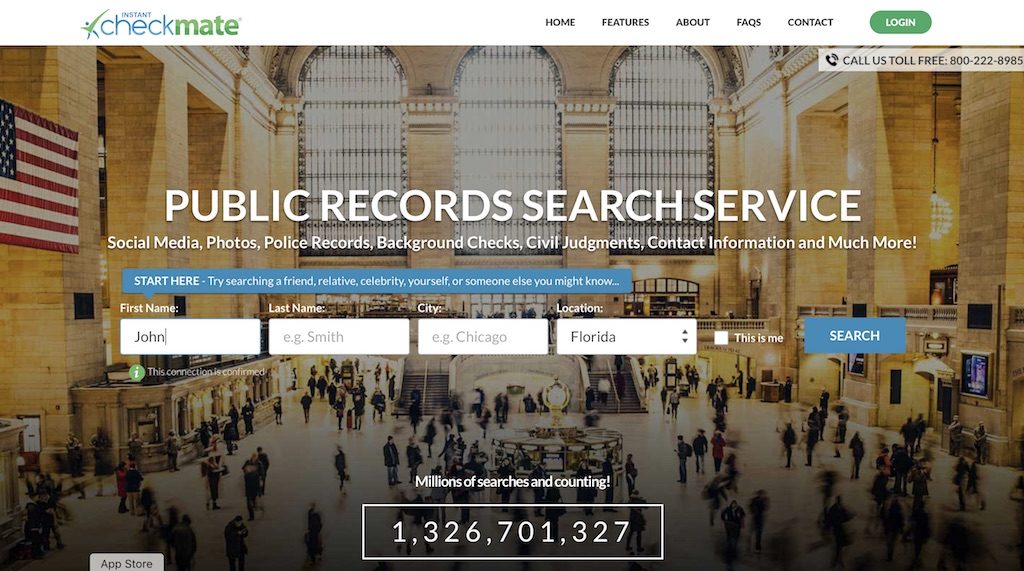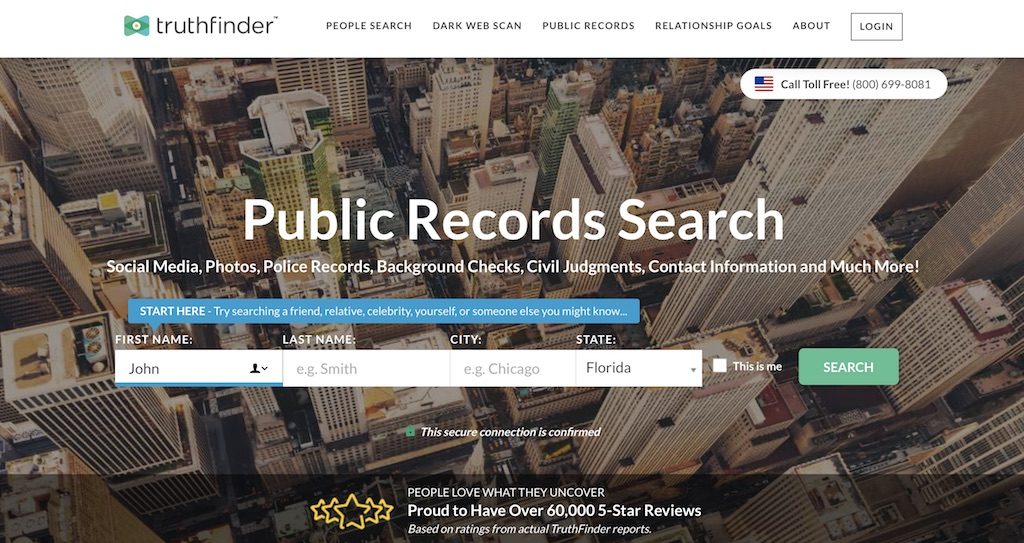Can Background Checks Be Shared?
If you are concerned that a background check being run on you could be shared with others, this is the article you need to read. We will tell you everything you need to know about background checks and the regulations that govern who they can and can’t be shared with. We also recommend the best background checks to see what information about yourself is out there.
Running background checks on job applicants is pretty standard practice these days. Most companies across most sectors want to check up on people before giving them a role in their business.
Employment background checks are a fact of life but that doesn’t mean people don’t still value their privacy. That’s why a lot of our readers contact us to ask whether the results of an employment background check can be shared with others.
The answer is not a simple yes or no, so in this article, we are going to dig down into the details and give you all the information you need to know.
What is a background check?
It’s important to be clear about what we mean when we are talking about background checks in this context.
A background check is a website or company which searches through publicly available records to find out as much information as possible about someone.
There is far more information about people held in the public domain in the USA than most people realize. In the past, this information was hard to access but digitization has resulted in greater transparency and now there are a plethora of companies that sort through hundreds of thousands of records to compile reports about anyone in the country.
The sort of information they can access includes:
- Criminal records (state, county, and city)
- Education history (high school and college)
- Employment history
- Financial records
- Credit history
- Work authorization
- Driving record
- License details
- Social media profiles
Individually, these sorts of records don’t tell you a great deal. But when all the data is put together into a single report, as most background checking sites do, they can create a vivid picture of what a person is like.
There are two main types of background checking sites. Consumer background checking sites are what businesses tend to use. They are compliant with all the necessary regulations and can tailor their searches to suit the specific needs of individual companies or sectors.
Public background checking sites are open for anyone to use and these will basically compile as much information as they can find. People use these sites for all sorts of different reasons:
- Criminal checks – If you have suspicions about someone in your neighborhood or at your workplace and are wondering if they might have a criminal background, running a background check on them is a simple way to find out if they are hiding a secret criminal past.
- Tracking down a lost family member or friend – Everyone has someone in their past whoop they have lost contact with, whether it be a friend from school or a long-lost relative. Even if you know almost nothing about someone, a background checking site offers a quick and easy way to find out where they are and how to contact them.
- Looking into someone’s past – If you want to get the lowdown on your mysterious neighbor or that older woman your son has just started dating, a background check is a fast and effective way to find out a great deal about almost every aspect of their life.
- Checking your own records – With so much information about everyone readily available these days, it is often a sensible precaution to find out what information about yourself is openly available to others. This can help if you are applying for a job or trying to rent a house. Sometimes it is possible to get files and information about you expunged which could prove a real help to you moving forward.
What is the most effective background checking site?
Before we examine in more detail whether information that is turned up in background checks can be shared, it is worth highlighting the best public background checking sites to use if you want to know what information there is about you that might show up on such a check.
Our top two recommended background checks are:
1. Instant CheckMate

Instant CheckMate is a great choice if you are looking to find out information about someone fast. As the name suggests, it is a lightning-fast service that can turn around a full background check faster than almost every site we have tested. These speeds don’t mean you have to compromise on quality either. Instant CheckMate’s results are also impressively accurate and comprehensive.
There is a dedicated desktop dashboard that users can manage all their searches on. This is simple, neat, and easy-to-use. The Android and iOS apps are similarly user-friendly and well-designed too. There is an impressive customer support team in place too and put together this means Instant CheckMate offers one of the most positive user experiences of any background checking site.
Instant CheckMate is available for $34.78 per month or you can choose to pay $27.82 a month for a three-month subscription. At these prices, that means it is not the cheapest background checking site around. But for a combination of speed and accuracy with good all-round service, there aren’t many better sites out there.
The Instant CheckMate desktop dashboard is neat and simple to navigate around and their apps were especially impressive. They can be downloaded onto Android and iOS devices and make running an Instant CheckMate search a real pleasure. With a helpful support team in place too, Instant CheckMate is another great background checking site.
2. TruthFinder

TruthFinder is a background checking site that really lives up to its name. It generates impressively accurate results even if it is given misleading or inaccurate information. Its algorithms are smart enough to overlook the wrong data and pull together what it can based on the information you give it that makes sense. The results it produces are seriously impressive.
TruthFinder gathers all the data it finds and puts it together in a well-designed and simple report. You can also follow all of your searches on its impressive apps and slick online dashboard too. TruthFinder truly is one of the most usable background checking sites we tested.
A particular highlight of the TruthFinder service was its customer support offering. This is available around the clock on a toll-free number and that means you can get help with your searches whenever it is convenient for you. Prices are competitive too and when all this is combined, the result is an impressive background checking site with a lot to offer.
Can background checks be shared?
In most instances, there is no reason why an employer would choose to share the results of a background check once they have used the information included to decide whether to give you a job or not.
For most businesses and organizations, the data will be considered in light of the job requirements. If everything checks out, they will then decide if you are the best candidate and whether they want to offer you the role.
If there is anything in the check that precludes you from taking up the role, they may or may not choose to tell you when informing you that you haven’t been hired.
Either way, the data will be used in line with the companies data protection policies and, while it may be held on file for a short time, it will most likely be deleted or destroyed shortly after the application process has ended.
However, there are a few scenarios where an employer might choose to share background check information:
- Temping agency – A temping agency will usually run background checks on candidates before deciding whether or not to accept them onto their staff. They are then selling your skills on to other companies. These companies may also want to see your background check and often a temping agency will share that with them. If they do, this will be detailed in the terms and conditions of the agreement you signed with them and if you have any concerns you should raise it with them directly. If you do not give permission, they are not supposed to share this information.
- Contractors – Businesses and homeowners will often hire other businesses to carry out construction or maintenance work on their properties. In this type of industry, it is common for contractors to be used rather than full-time employees. These could be freelance workers or staff from other companies. Businesses will usually run a background check on contractors but if their clients also want to see this information, they might also want to hand it over. As with temping agencies, this is something that they should only do with your permission and it will usually be outlined in your contract or agreement with them.
- Company takeover – If you work for a company that is then taken over by another business, that new business will become your employer. Depending on the arrangements of that takeover, they may want to review your background check s part of their process of vetting their new staff members. Again, this is something they will require your permission for.
Understanding the regulations
The important difference between consumer background checks and public background checks is the regulation that is in place for employers to govern what they can and cannot do.
The key piece of legislation is the Fair Credit Reporting Act (FCRA). This law enshrines an employee’s right to privacy in legislation and means that employers have to factor this in when handing your background check data.
The FCRA was passed in 1971 so no business should be claiming ignorance of its requirements almost 50 years later. It forbids the use of information like race, gender, religious group, or age being used as a deciding factor in hiring someone.
It also places restrictions on what background checking data employers can and cannot consider as well as how far back they can look at some records, such as criminal records and bankruptcy rulings.
The FCRA also requires a business to inform you if it plans to run a background check on you, plays restrictions on what they can and cannot do with the data, and also stops them sharing it with anyone else without your expressed permission. It also puts a process in place if you feel a consumer background check has returned incorrect information about you.
If you are concerned with how a business is handling your background check or think their background check is wrong, it is worth looking in more detail at the FCRA as it contains a whole host of protective clauses that could help you.
Summary
Background checks can be shared by employers in some circumstances. But it is not normal practice and they always need your permission to do so. In this article, we have explained why and also detailed the relevant regulations and laws that companies have to follow.
We have also explained exactly what we mean by a background check and explained the benefits of running one on yourself before applying for a job to see what information about yourself is out there.
Has an employer ever shared details of a background check about you? Did they follow the laws and what happened? It is always helpful for our readers to hear real-life examples of the issues they are worried about, so please do share your experiences with us using the comment box below.